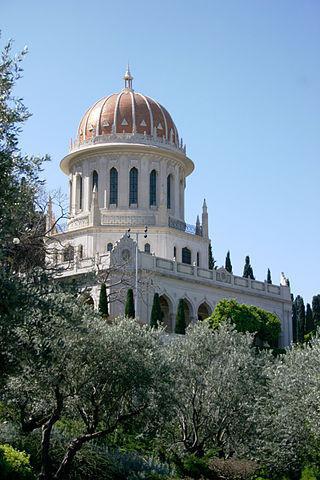The Bahá'í religion is a new and young phenomenon compared to the largest and most widespread world religions on Earth, which have passed a long way of formation and development. Baha'iism originated in the 19th century and is not tied to the belief of any people. Followers consider their faith a separate, independent religion, and not a sect or offshoot. The total number of believers is relatively small and totals only a few million.
The Bahá'í religion in Russia also exists; moreover, it appeared here even before the events of the revolution. It is believed that its roots go to Persia, from where it spread to India and the Russian Empire. The Bahá'í religion was originally considered by Muslims to be an Islamic sect, since its origin and postulates were seriously influenced by the Shiite branch of Islam. Today, even in the Muslim world, a new creed has been recognized as an independent religion.
Bahai religion: where it all began
The 19th century was a time when adherents of Christianity and Islam believed in the imminent coming of a new Prophet, and the latter were busy searching for the new Messiah. One of the seekers, Mullah Hussein, in 1844 accidentally met in Shiraz an unusual young man who believed that he was the new Prophet. His name was Sayyid Al Muhammed, 25 years old, he was short, handsome and pious. He spent all his time thinking about the Qur'an and God. He composed verses and claimed that they are the divine revelation of Allah granted to him. The young man himself called "women", that is, "indicating the gate to God."
In the same year, the Prophet went even further. Holding onto the ring of the Kaaba’s door, he proclaimed himself the Messiah in front of the crowd. To say such a thing in such a sacred place was real sacrilege. Despite the fact that the young man had followers, he was considered a troublemaker, undermining the foundations of Islam, and sentenced to imprisonment. Soon, Sayyid was transferred to the Maku fortress.

According to the plan of the authorities, the Kurdish community living here was to take hostility to the words of the young man. In fact, it turned out to be completely wrong, the Kurds were deeply imbued with his ideas. The transfer to a more remote area did not help - Baba's sermons so captured the minds of people that even the Kurd commandant could not resist them. In order to stop the spread of the doctrine, the prophet was put on trial. The sentence included corporal punishment. A reaction to these events followed immediately. The Babids staged a rebellion, announcing the beginning of the sunset era of Islam. The problem had to be solved, and the authorities sentenced Bab to execution. But that was only the beginning. The Bahai religion, the source of which is the writings of the Báb, developed into an independent course thanks to another person.
Bahá'u'lláh
It was he who continued the work of the Báb. He was from a wealthy, noble family, but after he believed in a new teaching, he abandoned his entire fortune. Engaged in spreading the ideas of Sayyid, he went to prison, where he received a revelation from God. After this, Bahá'u'lláh proclaimed himself the man whose arrival the Bab spoke of. Subsequently, the Baha'i religion arose thanks to him. But these events were still far away. Like his predecessor, he was sent to a place with a very poor climate, and then to prison, where he was sent to the most dangerous criminals. But Bahá'u'lláh survived.
Moreover, he managed to write the “Most Holy Book,” which became the basis of the Bahá'í’s creed. His sermons were heard here, and even the head of the local clergy came under their influence. Pilgrims began to flock to the place of exile. Bahá'u'lláh later began to live in a private mansion, whose name in translation means "joy." He died right there, seizing a fever.
The Basics of Baha'ism
Bahá'ís (religion) can be briefly represented by a few simple postulates. constituting its essence. Firstly, the assertion that
there is only one God who created everything around. Secondly, it is believed that God did not distinguish ethnic groups and peoples, creating them. That is, all people are equal and have the same rights, regardless of race, nationality or color. Thirdly, all religions are one. Baha'i followers believe that the source of all religions is one, and that is God. The difference is due to the fact that religions developed in different conditions in different eras. This is what caused the change and transformation of the original single idea.

Bahai (religion) briefly says that people are equal independently not only from the ethnic group, but also from the gender. That is, the equality of man and woman is taken for granted. The fundamental difference between Bahaism and other religions is the presence of a specific program, the steps that must be taken to achieve a new world order. For example, one of such steps is the elimination of ignorance as a phenomenon. On a global scale, this is difficult to do, but it is prescribed within the community to send all children to schools. If the family does not have enough money for this, and the community for some reason cannot provide financial support and allocate money for the education of all children, then the choice should be made in favor of the girls. This approach is considered the most rational, since the girl in the future will become a mother, namely the mother - the first mentor for the child.
That is, concern for subsequent generations is manifested. Moreover, it is compensation for the oppression experienced by women in the past.
Life features
The Bahá'í world religion has its own calendar. The year in it is divided into 19 months, 19 days in each of them. A symbol of faith is a nine-pointed star. In the community, a body called the House of Justice operates. Three people are annually elected from the community to conduct business and manage the life of worshipers. Bahá'ís negatively relate to alcohol consumption and addictions.
An important place in their value system is occupied by the institution of the family, and marriage as a union of a man and a woman is sacredly revered.
Bahai religion: creed, cult, and organization
Unlike other religions, the cult of the Baha'is is minimal. Any action performed with thoughts of serving God can be considered a worship. Mandatory is the reading of all three prayers. At general meetings that take place on the last day of the month, religionists read Baha'i scriptures as well as texts from other world religions. There is only one post during the year and is observed from March 2 to March 20 inclusive. Children, the elderly, pregnant and lactating women, as well as travelers, are exempted from it. In order to join religion, a person who has reached the age of 15 must communicate his desire in a spiritual meeting. The process of leaving the community is the same.
Houses of worship
This is the name of the temples of Baha'i followers. They have one central dome as a symbol of the One God and nine arched entrances. They are a symbol of the unity and diversity of human thought in the world.
House of worship includes not only a place for prayers and meetings, but also various auxiliary institutions. They are educational, educational and administrative in nature.
Clergy
The Bahá'í religion does not recognize the institution of the clergy as such. All decisions are made at annual spiritual meetings, and decisions are made in the process of secret voting of all adult members of a particular community. The clergy as an institution does not need Bahaism, because for them any action performed with love for God and in the context of serving Him is already a cult practice that does not require intermediaries.
Leo Tolstoy on the Bahai religion
At the time of the writer, the Bahá'í religion in Russia was already known. Tolstoy and the Bahá'ís, so to speak, knew perfectly about each other. The writer, captured by a new idea, is in correspondence with religious followers around the world. Baha'ism spread very quickly, seized by the intelligentsia of different countries. Tolstoy spoke positively about babism and believed that he has a great future in the Muslim world as a moral teaching about life.
Gabriel Sacy wrote three letters. He set forth the postulates of the new religion, its meaning and the plight of the followers. In response, Tolstoy spoke out in defense of the Baha'is in a letter to be published in the countries of the Arab world.
Baha'is of Russia
The Bahá'í religion in Moscow also has followers, despite the fact that representatives of the Orthodox clergy consider religion a Muslim sect. Their number is not as numerous as in the Arab countries. Despite this, the community carries out educational activities and follows the tenets of the faith. The Bahá'í religion in Voronezh is only beginning to develop thanks to the activities of religious followers. They conduct classes on the spiritual education of Baha'is not only in their own city, but also in Moscow. Most communities are not registered. The approximate number of followers in the main cities of Russia does not reach 100 people. The Bahá'í religion in Voronezh is preached by Maria Skrebtsova and Alesya Lopatina.